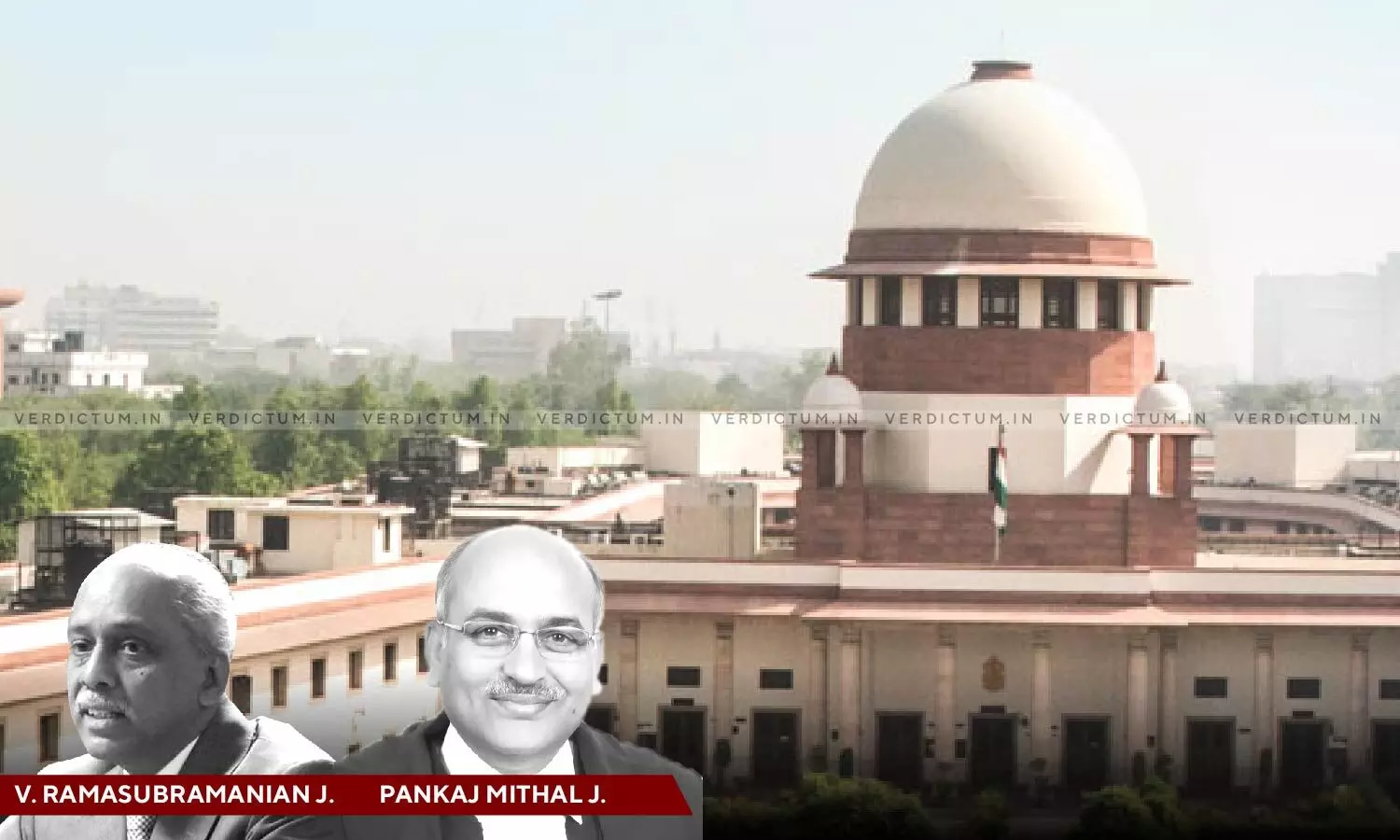
IBC| Exclusion From Definition Of Assets Owned By Third-Party But In Possession Of Corporate Debtor Is Limited To Section 18- SC
 |
|A Supreme Court Bench of Justice V Ramasubramanian and Justice Pankaj Mithal has specified that under the IBC, "the exclusion of assets owned by a third-party, but in the possession of the Corporate Debtor held under contractual arrangements, from the definition of the expression “assets”, is limited to Section 18. In other words, the Explanation under Section 18 does not extend to Section 25."
In this case, the dispute was a triangular fight between the ostensible owner of a piece of land (Energy Properties), the Corporate Debtor who actually financed the purchase of the said property, and a party to whom a portion of the land was given under a Leave and License Agreement but claimed to be in possession of the entire land (Victory).
Two issues arose for the consideration of the Court and were answered in the following manner:
(i) What is the nature of the right or interest that the Corporate Debtor has over the property in question, for the purpose of deciding the inclusion of the same in the Information Memorandum prepared by the Resolution Professional under Regulation 36 of the Regulations?
The Court noted that "the definition of the expression “property” under Section 3(27) includes “every description of interest, including present or future or vested or contingent interest arising out of or incidental to property”. Since the expression “asset” in common parlance denotes “property of any kind”, the bundle of rights that the Corporate Debtor has over the property in question would constitute “asset” within the meaning of Section 18(f) and Section 25(2)(a) of IBC".
Subequently, the Court undertook a detailed analysis of the sequence of events and the terms & conditions contained in the Agreements entered into by the parties. Subsequently, the Court was of the considered opinion that "it is more clear than a crystal that a bundle of rights and interests were created in favour of the Corporate Debtor, over the immovable property in question. The creation of these bundle of rights and interests was actually for a valid consideration. But for the payment of such consideration, Energy Properties would not even have become the owner of the property in dispute. Therefore, the development rights created in favour of the Corporate Debtor constitute “property” within the meaning of the expression under Section 3(27) of IBC."
In furtherance of the same, it was held that "Some of these bundle of rights and interests, partake the character and shade of ownership rights. Therefore, these rights and interests in the immovable property are definitely liable to be included by the Resolution Professional in the Information Memorandum and the Resolution Professional is duty bound under Section 25(2)(a) to take custody and control of the same."
(ii) Whether NCLT and NCLAT have exercised a jurisdiction not vested in them in law by seeking to recover/protect the possession of the Corporate Debtor?
The main contention of the appellants to the impugned orders of the NCLT and NCLAT was that under Section 18 of the Code and also by virtue of the judicial pronouncements, the disputes between the Corporate Debtor and the third-party lessee/licensee are not amenable to the jurisdiction of the authorities under the Code.
However, the Court observed that "the Explanation under Section 18 begins with a caveat namely “for the purposes of this Section”. Therefore, the exclusion of assets owned by a third-party, but in the possession of the Corporate Debtor held under contractual arrangements, from the definition of the expression “assets”, is limited to Section 18. In other words, the Explanation under Section 18 does not extend to Section 25."
Further, the Court held that "NCLT as well as NCLAT have done a delicate act of balancing, by protecting the interests of Victory to the extent of the land permitted to be occupied. In fact, Victory does not even have the status of a lessee, but is only a licensee. A license does not create any interest in the immovable property."
In light of the same, the Court held that the NCLT, as well as NCLAT, were right in holding that the possession of the Corporate Debtor, of the property needs to be protected.
Subsequently, the appeals were dismissed. No orders were passed as to costs.
Cause Title: Victory Iron Works Ltd. v. Jitendra Lohia & Anr.
Click here to read/download the Judgment